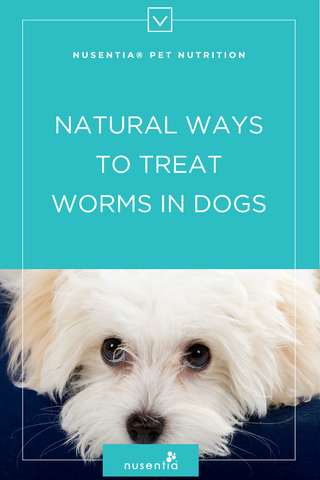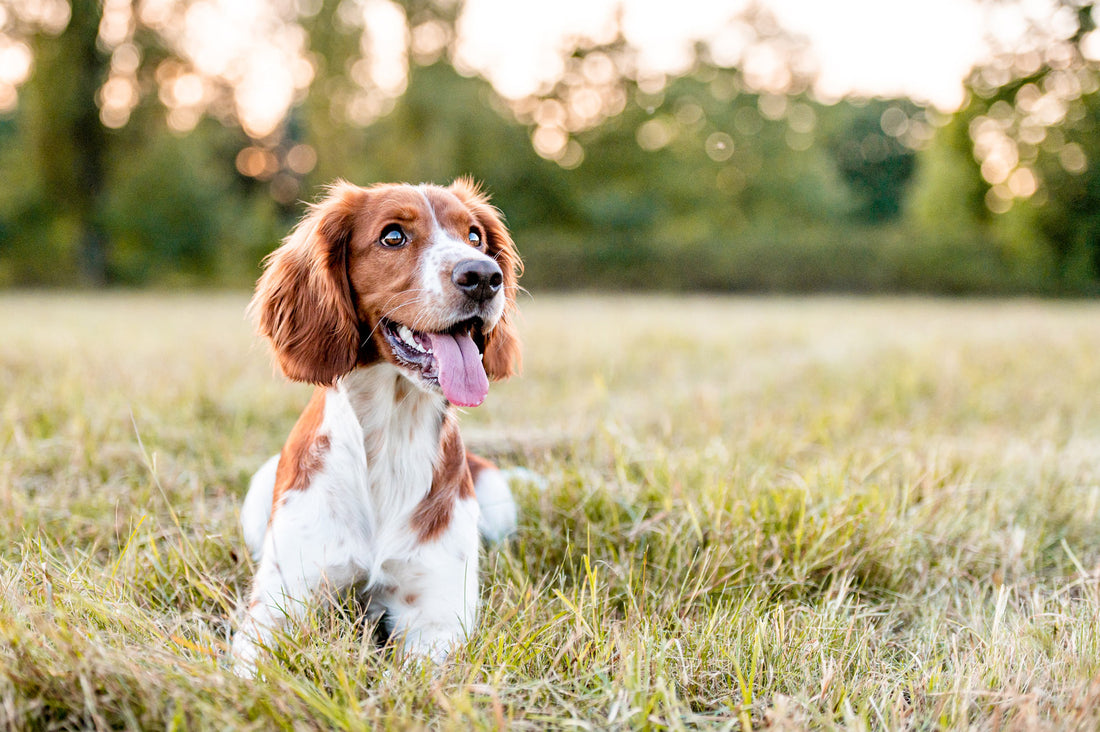Overview
It's unsettling to think about, but our four-legged friends can sometimes harbor internal parasites that affect their overall health. Understanding the methods of parasite and worm infestation, symptoms, risks, and treatment options is crucial for pet owners. This guide will also explore natural ways to treat worms in dogs.
Let’s first delve into how dogs contract worms.

How do dogs get worms?
Dogs, due to their social nature and penchant for exploring outdoors, are prone to worm infestations, regardless of their age or breed. They can contract worms through several means:
- Consuming contaminated milk from their mothers during their early life
- Sniffing, eating, or licking contaminated soil while outdoors
- Eating infected reptiles, birds, and rodents
- Accidentally ingesting mosquitoes, ticks, and fleas
- Contact with other infected dogs or animals
- Eating feces from other dogs with worm infestations
What are the symptoms of dogs having worms?
Since different parasites target specific areas within the host, symptoms can vary based on the type of worm present. Common symptoms caused by intestinal worms include:
- Abdominal pain
- Vomiting
- Diarrhea
- Weight loss
- Lethargy
- Pot-belly appearance
- Dehydration
- Dull coat
- Nutritional deficiencies
- Anemia
- Blood in stool
- Loss of appetite
Heartworms specifically may lead to respiratory symptoms, such as exercise intolerance, coughing, weight loss, a weak pulse, and in severe cases, labored breathing and death.

What types of worms are present in dogs?
Dogs can be affected by several types of worms, with the following being of significant concern:
Roundworms
Roundworms can be transmitted from mother to puppy and through oro-fecal contact between dogs. T. leonina and T. canis are significant species, with the latter also being transmissible to humans.
Tapeworms
Tapeworms reside in the intestines and can be contracted through eating infected fleas or wild animals. D. caninum is a common species in the United States.
Hookworms
Hookworms, particularly Ancylostoma caninum, are blood-feeding parasites that can cause anemia. Puppies may become infected through their mother's milk.
Whipworms
Whipworms live in the cecum and colon, with infection typically occurring through ingestion of contaminated food, soil, or feces.
Heartworms
Heartworms are transmitted by mosquitoes and can cause severe heart and respiratory issues, potentially leading to death.
How to prevent worms in your dog?
Protect your puppies with initial treatments and maintain a monthly deworming schedule. Regular fecal exams (three times a year) and hygienic practices are essential. Additionally, enhancing your dog’s gut health with Probiotic Miracle can provide a natural defense against worms.
Ways to Treat Dog Worms Naturally
Once your dog has worms, it's a struggle to get rid of them naturally. The best prevention is to create an inhospitable environment for them. A couple home remedies are worth exploring in this circumstance:
Pumpkin Seeds
Pumpkin seeds are a natural remedy for worm infestations in dogs, thanks to an amino acid called cucurbitacin, which paralyzes worms, making it easier for them to be expelled. Offering more than just anthelmintic properties, these seeds are also packed with nutrients like zinc, iron, and fiber, supporting overall health, digestion, and immune function. For safe and effective use, ensure the pumpkin seeds are unsalted, unseasoned, and finely ground to prevent choking and facilitate digestion. While beneficial, pumpkin seeds should complement, not replace, professional veterinary care for worm treatments. Always consult with your vet for a comprehensive approach, especially for severe cases, and introduce pumpkin seeds gradually into your dog’s diet.
Apple Cider Vinegar
When it comes to worms in dogs, ACV is believed to create an environment in the digestive tract that is less hospitable to worms and other parasites, potentially aiding in prevention. Among the host of uses and benefits of apple cider vinegar for dogs, the theory is that ACV can help balance the pH level in a dog's gut, making it a less inviting place for worms to thrive.
Probiotics
Probiotic supplements play a crucial role in introducing beneficial bacteria to a dog's gut, significantly enhancing intestinal function and bolstering the immune system against parasitic worms. Probiotic Miracle® offers a natural method for combating infestations goes beyond merely addressing symptoms by targeting the underlying health of the gastrointestinal tract. The introduction of specific strains of beneficial bacteria through these supplements helps establish a balanced gut microbiome, creating an environment less hospitable to the growth and proliferation of parasites.
Additionally, a healthy gut flora supports the digestion and absorption of nutrients, further strengthening the dog's natural defenses. By improving gut health, probiotics not only aid in the prevention of worm infestations but also contribute to the overall vitality and well-being of the dog, making them a vital component in maintaining pet health.
Consult your vet
While natural remedies like probiotics can play a supportive role in maintaining gut health and boosting immunity, they should complement, not replace, professional medical advice. A veterinarian can accurately diagnose the type of worm infestation, its severity, and recommend an appropriate treatment plan, which may include both pharmaceutical and natural approaches. Regular check-ups and fecal exams are vital for early detection and prevention of worms, ensuring your pet receives the most effective care. Balancing natural supplements with professional veterinary guidance offers a comprehensive approach to your dog's health and well-being.
Conclusion
Maintaining a clean living environment and practicing regular grooming can significantly reduce the risk of worm infestations in dogs. Implementing natural remedies and preventive measures, such as probiotics can bolster your dog's intestinal health, making it less hospitable to parasites.Regular veterinary check-ups and adhering to a natural preventive regimen can keep your dog healthy and free from worms.
Visit Nusentia for natural, trusted pet health supplements with proven formulas to improve your furry friend's overall health. A trusted brand by veterinarians and pet parents since 2008.
References
https://www.hindawi.com/journals/jpr/2011/610769/
https://nusentia.com/products/probiotics-dogs-cats
https://www.bluecross.org.uk/pet-advice/intestinal-worms-dogs
https://www.akc.org/expert-advice/health/worms-in-dogs-prevention-diagnosis-treatment/
https://www.vieravet.com/services/dogs/parasites/deworming-dogs




